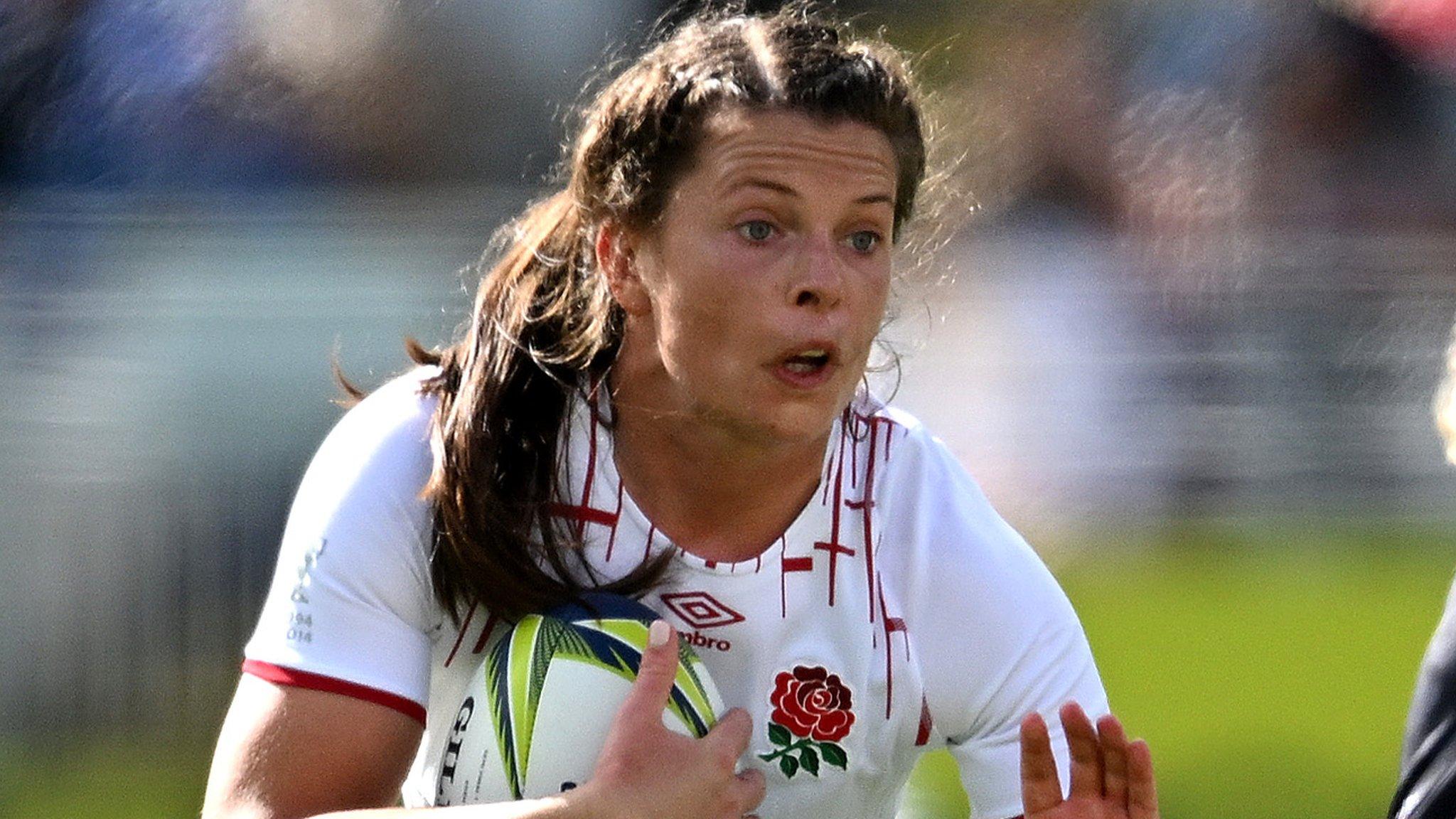Abbie Ward: Rugby player wants to 'smash glass ceiling'
- Published
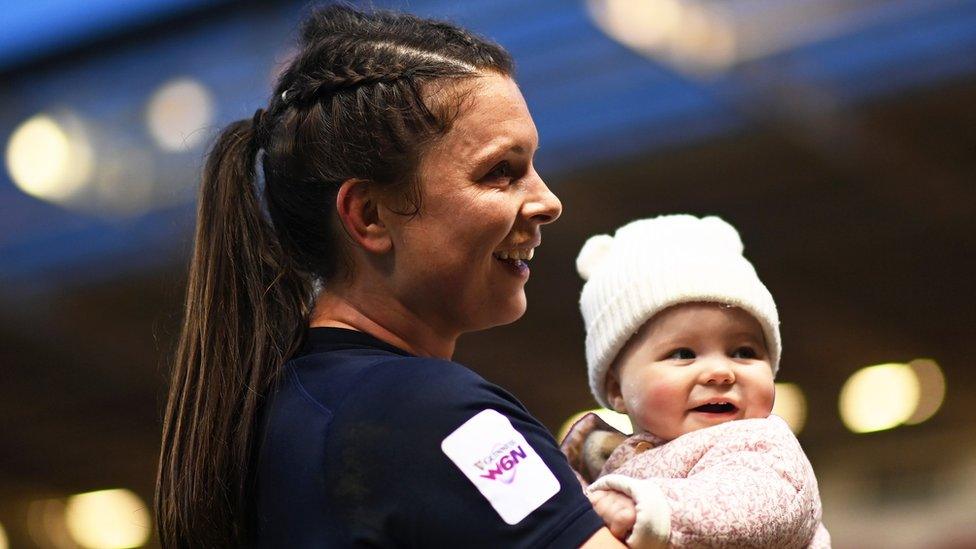
Abbie Ward hopes her story will help other women in rugby and all sport get support around maternity and childcare
A professional rugby player who had a baby and returned to the sport 17 weeks later says she is hoping to pave the way for other women.
Abbie Ward has won several Six Nations titles, competed in two Rugby World Cup finals and is the first woman to benefit from new rugby maternity rules.
"I was the first player to have a baby while still training [with] a plan to get straight back," she said.
Her story has now been made into an ITV documentary A Bump in the Road.
Ms Ward said: "This was the first time nutritionist, trainers, coaches all came together to support this journey [and sharing this now] means it will be easier for the next player."
Ms Ward, who also plays for Bristol Bears, gave birth to daughter Hallie nine months ago and said with the Six Nations getting more competitive each year and the Red Roses being "phenomenal", part of the challenge was just getting back into the team.
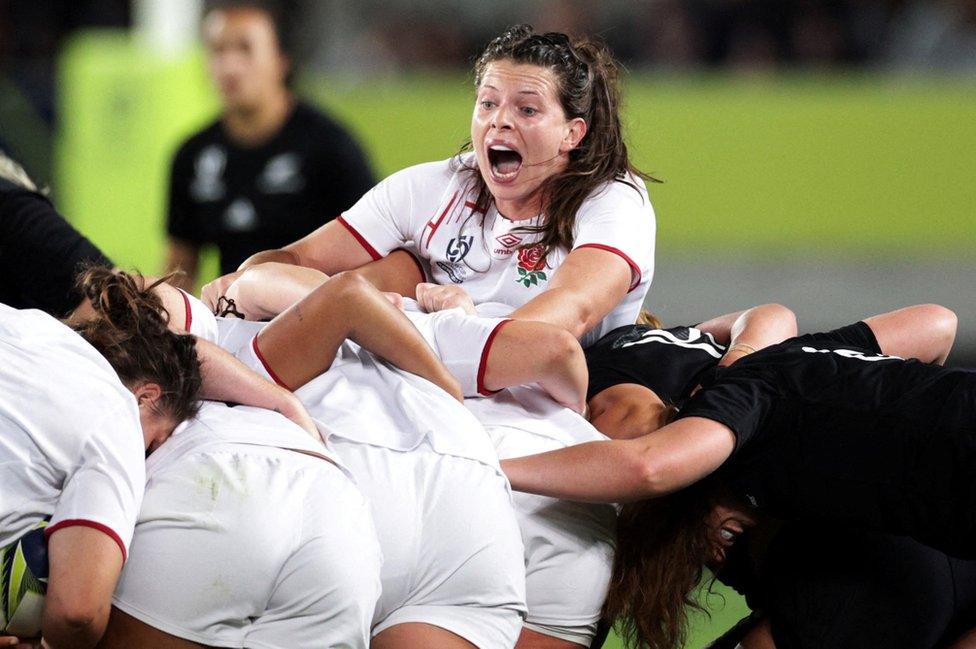
Abbie Ward during a lineout at the Rugby Union Women's World Cup final in November 2022
As one of the first Red Roses players to be awarded a professional contract she said it was "hugely important, for my personal and professional journey" to return to the game she loved.
"I've been playing for the Red Roses for 10 years and put years and years of blood sweat and tears into it. It doesn't happen overnight.
"It's been tough [but being back] means an awful lot to me because I want to be the best player in the world."
She said she hoped to show her daughter that "other players, girls, other people, in other work places that you can start a family but it doesn't mean your career ends".
Being both a mother and a professional rugby player is definitely a challenge but it is nice to have a separation, she added.
"I have always been very intense with rugby but now when I go home I separate that and it's a new dynamic."
Ms Ward said the documentary shows behind the scenes and "what it takes, going through pregnancy training, having Hallie then getting back after... It's been really nice to open that up so people can see that."
And she hopes shining a spotlight on Rugby Football Union (RFU) maternity policies will help women get support around the world.
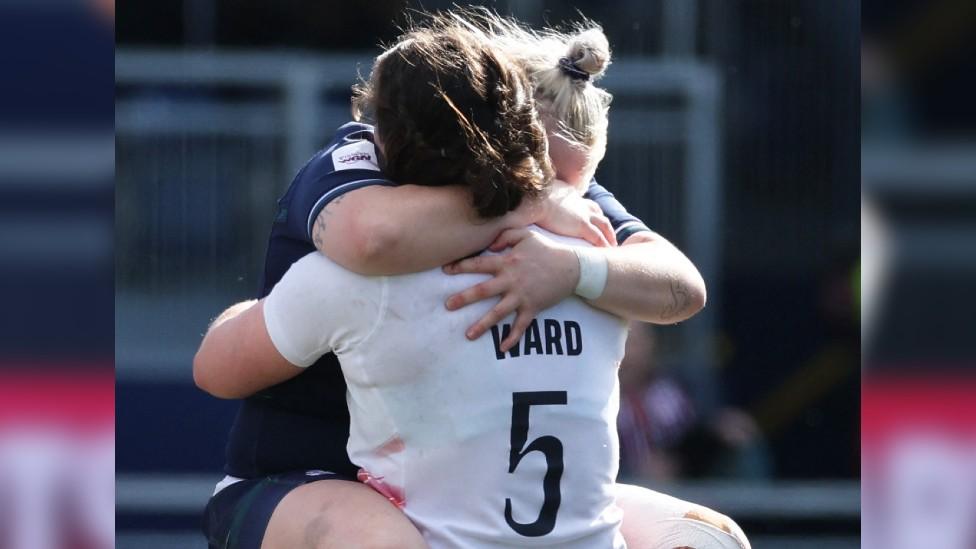
Abbie Ward with Scotland's Lana Skeldon at the Six Nations in April
Ms Ward started getting involved with rugby as a child, growing up in Keswick in the Lake District.
"I was very lucky as they had an amazing rugby community... the brilliant thing was everyone mixed up so a six-year-old girl [was] passing to a first team guy, passing to someone's mum, passing to someone's uncle," she said.
At the time professional rugby did not exist in the woman's game so although she would not have seen it as a career, she said it was the sport she just kept going onto the next step with.
"I went to university thinking I would get my degree then maybe go into law and that went awry when I was playing uni rugby on the Wednesday, Premiership rugby on the Sundays and suddenly thought OK, I'm gonna chase this."
She started training in the women's team at Northumbria under coach, Simon Culley.
"He was a pioneer as he saw the men's and women's game on a level playing field," with Culley letting her do skills and set piece with the men each week.
"Having to do a line-out and lift a 100kg guy helped me when I was lifting an 80kg women," she added.
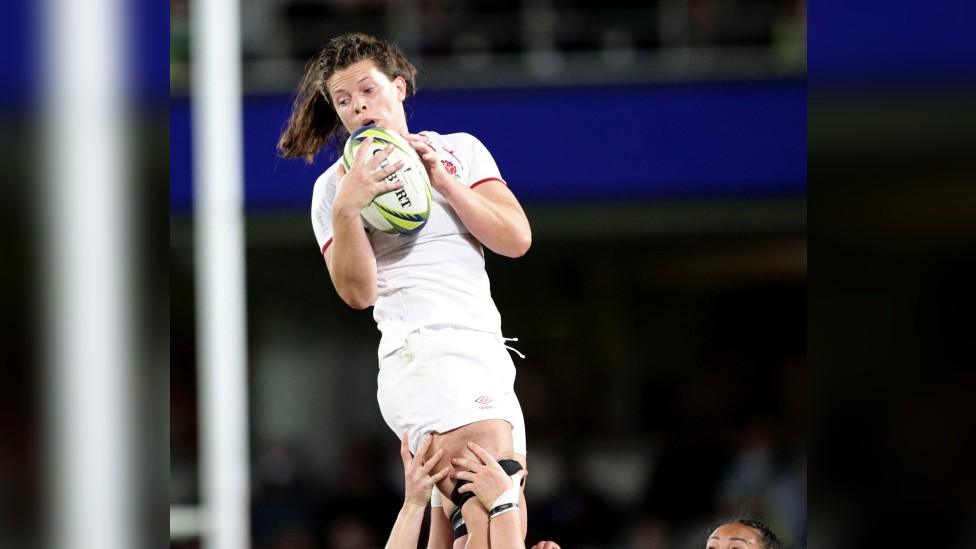
Abbie Ward during a line-out at the Rugby World Cup final in November 2022
Gradually funding and investment for the women's game started to improve, but she said that only comes from the players delivering on the the pitch.
"You could see changes happening, particularly because of the results we were getting, they had to sit up and listen and start investing," Ms Ward said.
"For me its always been about there's this glass ceiling, lets go and smash it.
"We used to have to pay £6 subs if we started a game, £4 if we were off the bench and pay for our own kit.
"And £1.50 for your jacket potato after the game."
Now competitions have grown from playing with maybe 50 people in the stands to playing in front of around 60,000 spectators at Twickenham, she added.
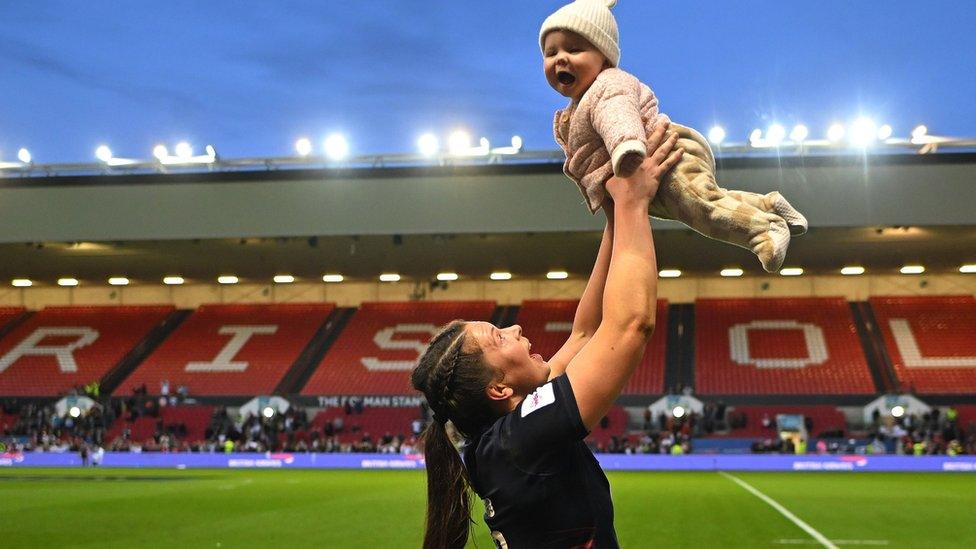
Ms Ward said she has been given everything she needs as a new mother returning to the sport
Ms Ward said Bristol Bears have been "brilliant and proactive", organising a changing table and asking what else she needs.
"They've come to me with everything, I haven't had to ask for anything."
"Part of this is about normalising and shedding light. In the men's side, so many of them have children and families.
"But in the women's side, at Bears, there are two of us with children."
And there is also a physical consequence to choosing to have a baby while still competing for women.
"If you look at peak performance as climbing Everest, and you're getting up there to the top.
"Having a baby is not just going back down to base camp, it's going all the way down into Nepal and you have to start again.
"It has been very hard work but when you get back up there..." she added.
"It's just a completely different ask of yourself, mentally it's also tough," but she said you can have it all "if you put the work in, take the highs with the lows and enjoy it".
"I'm absolutely loving being back in an England shirt, and a Bristol shirt, and it's been an unbelievable season to come back into.
"I wanted to make very clear just because I'm having a baby it doesn't mean I'm any less ambitious about my rugby.
"It's been a tough nine months getting back to this point… [but] I don't feel like I've played my best rugby yet.
"Getting that shirt back was just the start... I've got a lot of gears left in me," she added.

Follow BBC Bristol on Facebook, external, X, external and Instagram, external. Send your story ideas to us on email, external or via WhatsApp on 0800 313 4630, external.
- Attribution
- Published30 June 2022
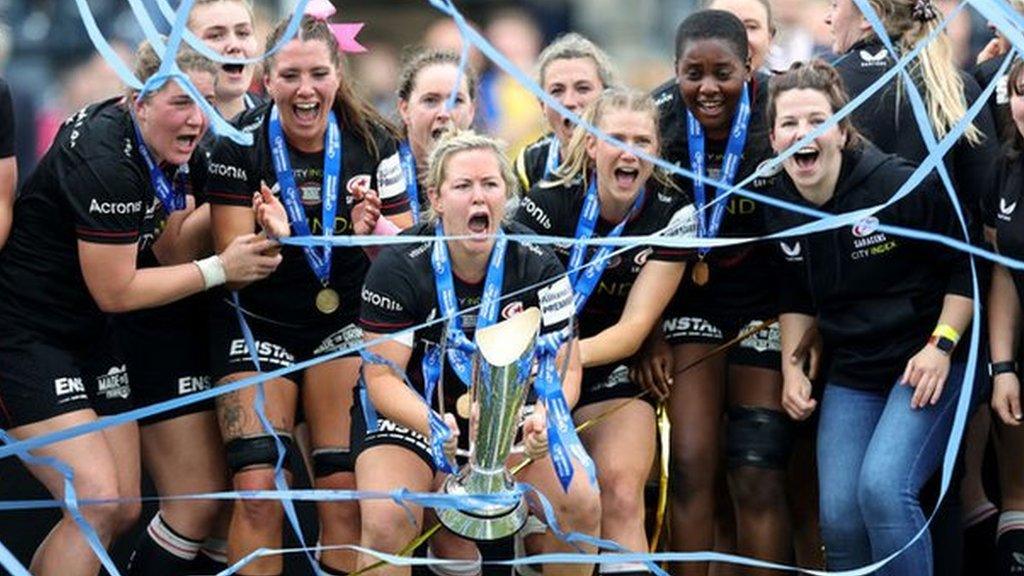
- Attribution
- Published28 July 2022
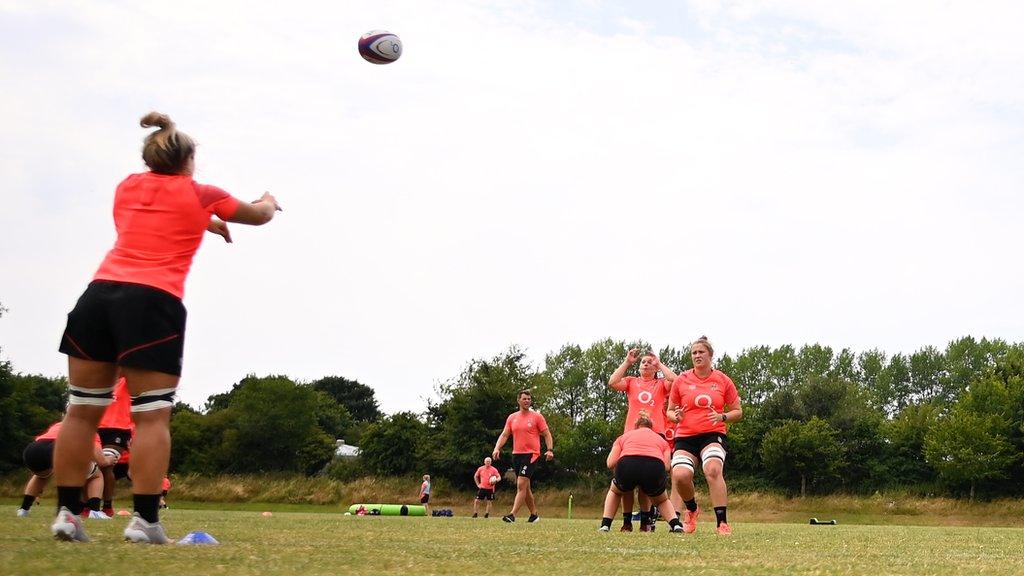
- Attribution
- Published9 February 2023
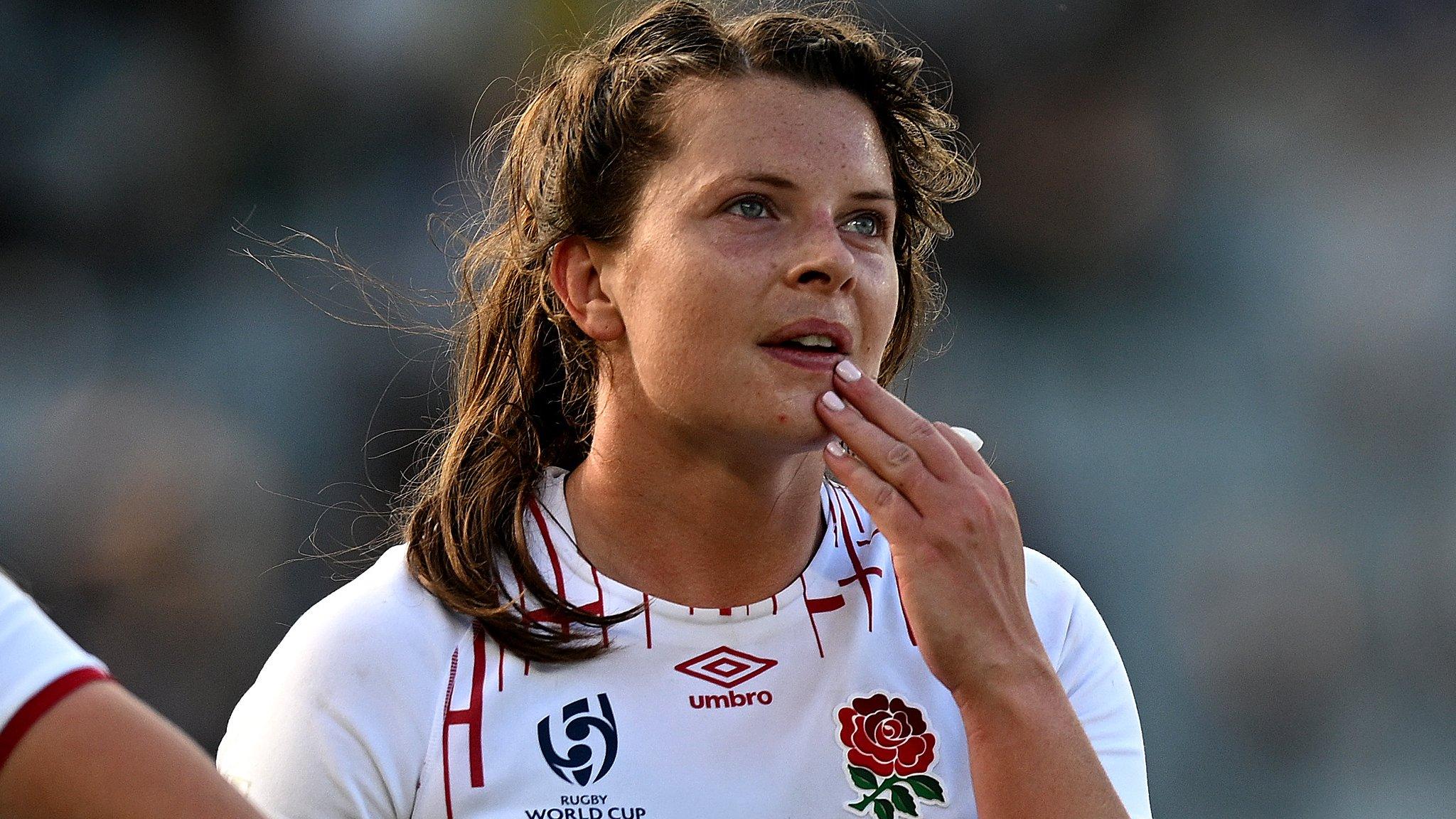
- Attribution
- Published16 February 2023
